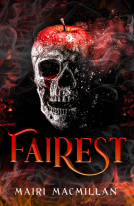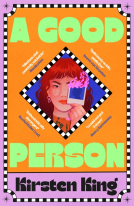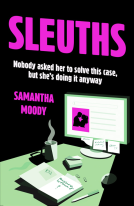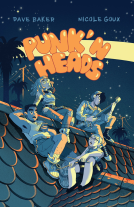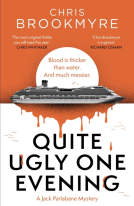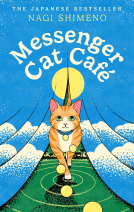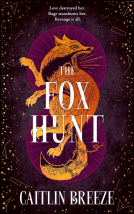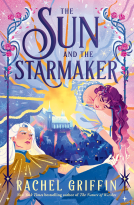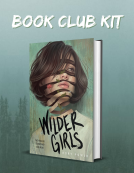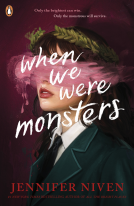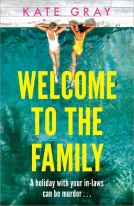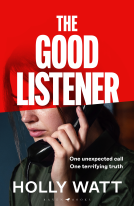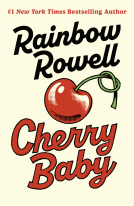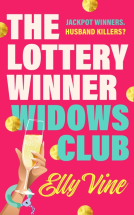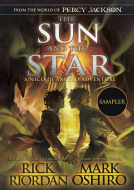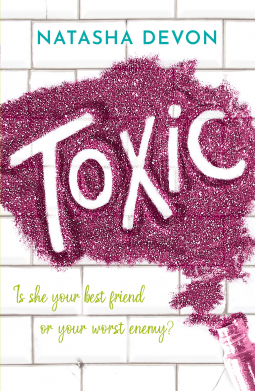
Toxic
by Natasha Devon
This title was previously available on NetGalley and is now archived.
Send NetGalley books directly to your Kindle or Kindle app
1
To read on a Kindle or Kindle app, please add kindle@netgalley.com as an approved email address to receive files in your Amazon account. Click here for step-by-step instructions.
2
Also find your Kindle email address within your Amazon account, and enter it here.
Pub Date 7 Jul 2022 | Archive Date 14 Jul 2022
Talking about this book? Use #Toxic #NetGalley. More hashtag tips!
Description
Llewella has straight-A grades, a lead in the school play, a prefect badge, a successful blog and a comfortable life. Despite this, she feels like a brown, chubby square peg at a school full of thin, white girls. She's never had a best friend. Could the new student at sixth form - glamorous, streetwise Aretha - be the one? Llewella and Aretha get tight, quick. Before long, Llewella is following a diet Aretha has designed for her and has abandoned her own passions to dive headfirst into Aretha's world. She’s determined to be the most loyal, greatest friend she can be, even when Aretha says and does things which make her feel the opposite of great. Even when the anxiety disorder she thought was cured starts to re-emerge. Isn't that how friendships work?
Available Editions
| ISBN | 9781912979899 |
| PRICE | £8.99 (GBP) |
Average rating from 70 members
Featured Reviews
I really enjoyed this book, the characters were engaging and relatable especially Llewella and the writing style was good. I think the story premise is on ethat a lot of teens will find relatable as well. I reas this in one setting, I couldn't put it down.
 Reviewer 485727
Reviewer 485727
This was one of those books I just couldn’t stop reading. I devoured it in two days, even reading until 5am because I just had to finish it.
This book tells the story of Llewella and her new friend, Aretha. And right from the start, we can see that Aretha is a toxic, manipulative friend. I love stories that look at twisted relationships, and I think this is now one of my favourite books about manipulative and toxic female friendships (my other favourite is Genuine Fraud by E. Lockhart).
The friendship portrayed in Toxic is so one-sided, and so many times I just wanted to scream at Llewella to get away from Aretha.
Llewella has anxiety and panic attacks. Aretha pretends she’s good with these, but she’s not. She undermines Llewella’s mental health struggles constantly, and then she herself claims to have bipolar, referring to it as a ‘real’ disorder—oh and she isn’t diagnosed and won’t see a doctor. My jaw hit the floor here. It seems Aretha uses her self-diagnosis as a way to excuse what a horrible person she’s being. She emotionally abused Llewella constantly and it’s so obvious to readers. I was screaming inside as I read this. I don’t think I’ve ever hated a character as much as I hate Aretha. she calls Llewella fat and gives her a meal plan. Llewella spirals into eating disorder territory because of this, but it’s Aretha doing her a favour, ‘improving’ her. Aretha takes over the blog that Llewella started and then makes her start a new brand with her. Llewella’s money goes into it, of course. Aretha wants Llewella to be dependent on her, but then she abandons her at several points, one time in London zone 1, despite Aretha having panic attacks.
Aretha makes it clear she thinks mental illness is a conspiracy, that it’s something that means the person isn’t strong or resilient. She uses Llewella’s anxiety against her, so when we do get Aretha saying she thinks she is bipolar, that was immensely interesting. Because, she could have bipolar disorder. But still that doesn’t excuse her treatment of her supposed best friend.
The mental illness rep is phenomenal. Aretha makes it clear she thinks mental illness is a conspiracy, that it’s something that means the person isn’t strong or resilient (she also is fatphobic and claims a character with PCOS is plus-sized because of lack of discipline and illnesses can’t cause it—Llewella tackles her on this, but of course Aretha turns it around so Llewella is wrong). She uses Llewella’s anxiety against her, so when we do get Aretha saying she thinks she is bipolar, that was immensely interesting. Because, she could have bipolar disorder. But still that doesn’t excuse her treatment of her supposed best friend. And she’s a horrible person. At the start of the book, Llewella is happy, a straight A* student, has an important part in a play, and has a blog and other friends. Not too long after she’s friends with Aretha, Llewella is unhappy, her grades are dropping, she’s got an eating disorder, her panic attacks worsen, she’s in therapy, she gives up the play (as Aretha says she’s got to prioritise), loses her other friends, and she basically loses who she is.
Half the time, Aretha is suddenly annoyed with Llewella for no apparent reason, making Llewella’s anxiety much worse. And it amazed me how whenever Aretha was mean to Llewella and Llewella tackled her about it, Aretha turned it round. Seconds later, Llewella was justifying Aretha’s reaction and blaming herself. Classic gaslighting.
This is the kind of relationship you see in abusive romantic relationships, and those are covered in books a lot. But this is the first time I’ve seen it done in friendship. And we need this book.
This book also tackles racial issues. Both Aretha and Llewella are mixed race, and one example is Aretha is annoyed that Llewella gets a TV opportunity that she doesn’t. She blames it on Llewella being lighter skinned than she is, and tells Llewella to turn the opportunity. Even though it’s what Llewella really wants, and she gets the opportunity because of the blog that she started, two years before she even met Aretha. It appeared to me that Aretha felt entitled to getting the TV role and when Llewella got it instead, she blamed it on racial prejudice. And yes, there could be those reasons in it too, but for me (though I acknowledge I am a white reader), Llewella clearly deserved it. It was her blog. She had done the work. And Aretha clearly didn’t want Llewella to succeed. So while this book does shine a light on the important issue of racial discrimination, it largely does this while also emphasising the toxic character that Aretha was. But there are Black characters, such as Steph, who also encourage readers to think about race and privilege, and this is done in an unproblematic way—though of course Aretha hates Steph, disagreeing with everything she says, until she can then say the same things to attack Llewella.
I really liked how Llewella has a supportive network of women (and her grandfather) around her. These women give her the strength to end the brand with Aretha and gain back some of her happiness.
Huge thank you to NetGalley and the publisher for the ARC. This is highly recommending reading and I think it should actually be compulsory reading for teenagers in schools.
Some friendships are an illusion. You get drawn in by the mystery of a person and then you think they are great and you want to be a cool friend and do everything together.
This is not always the case some can become toxic and unkind people will push you as far as they can regardless of how you feel.
Llewella is learning that not all friendships are cracked up to be and not everyone is nice.
A great read, i could not put this down.
Readers who liked this book also liked:
Elly Vine
General Fiction (Adult), Mystery & Thrillers, Women's Fiction
Rick Riordan; Mark Oshiro
Children's Fiction, LGBTQIA, Teens & YA
